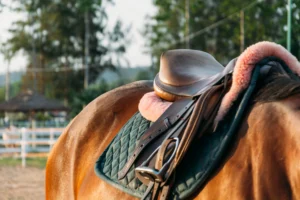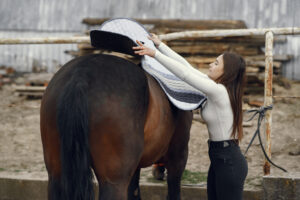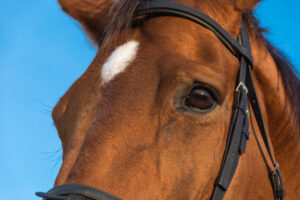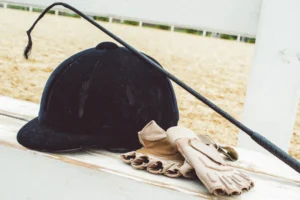Introduction
The horse mask phenomenon has galloped through popular culture over the past decade, transforming from a niche costume item to a viral sensation. Whether you’ve encountered someone wearing a realistic horse mask at a party or scrolled past countless memes featuring these equine disguises, these distinctive facial coverings have certainly made their mark on internet culture. While the funny horse mask trend continues to have its enthusiasts, there are legitimate concerns about these masks that deserve attention.
This comprehensive guide examines the potential drawbacks of horse masks and why you might want to reconsider purchasing or using one. From practical considerations to ethical implications, we’ll explore the five key reasons why a horse mask might not be the best choice for your next costume party or practical joke.
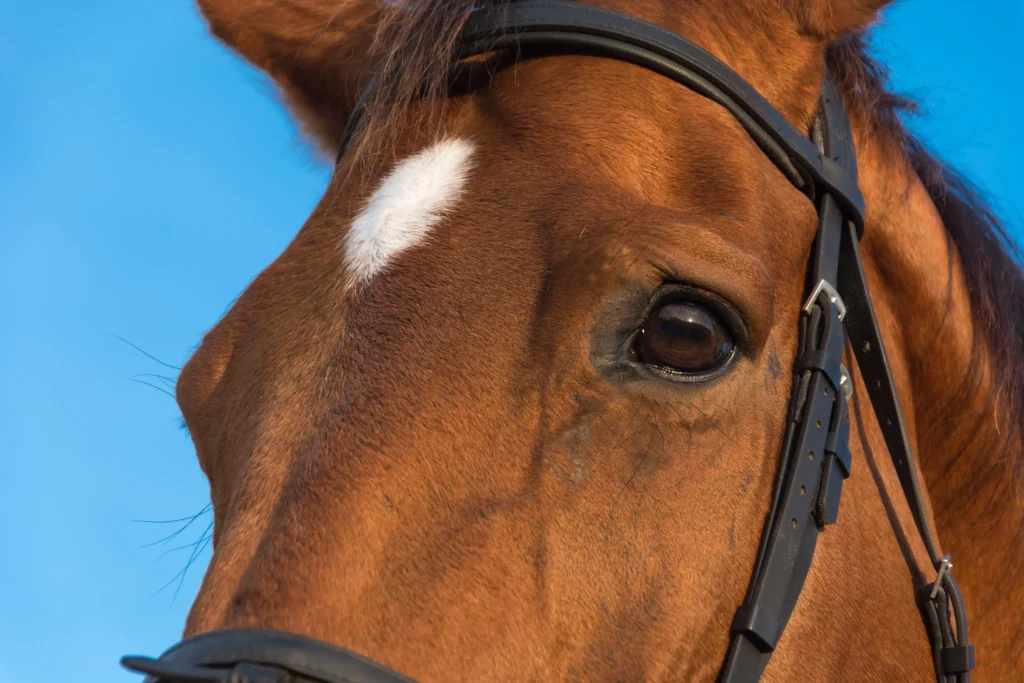
Understanding the Horse Mask Trend
Before diving into the reasons to avoid a horse-mask, it’s worth understanding what makes these items so popular in the first place. The typical horse head mask is made from latex or rubber materials, covering the entire head with an elongated snout and features that mimic a horse’s face. Available in various styles from the standard latex horse-mask to more elaborate horse costume mask designs, these masks gained significant popularity after appearing in viral videos and social media posts.
The appeal of a horse-mask often lies in its absurdist humor—the juxtaposition of a human body performing everyday tasks while sporting an expressionless equine head creates an inherently comedic situation. This has led to an entire subgenre of internet content featuring people in horse-masks doing everything from grocery shopping to dance performances.
However, as with many internet trends, the reality of owning and wearing a horse-mask doesn’t always match the amusing images we see online. Let’s explore why you might want to think twice before galloping into this particular costume trend.
Reason 1: Health and Safety Concerns
Restricted Vision and Awareness
One of the most immediate issues with wearing a horse-mask is the severely limited field of vision. Most horse head mask designs feature small eye holes that provide minimal peripheral vision, creating a tunnel-vision effect that can be disorienting and potentially dangerous.
This restricted visibility makes a horse-mask problematic for:
- Navigating crowded spaces
- Climbing stairs or traversing uneven terrain
- Driving or operating any machinery (which should NEVER be attempted while wearing a horse-mask)
- Being aware of your surroundings at parties or events
Breathing Difficulties
Many users report that wearing a latex horse mask or rubber horse mask for extended periods can lead to breathing difficulties. The material doesn’t allow for proper air circulation, and the enclosed space can become hot and stuffy quickly. This is particularly concerning for:
- People with respiratory conditions
- Use during hot weather or in warm indoor environments
- Extended wear during physical activities
According to a study from the University of Cincinnati on costume masks in general, impaired breathing can lead to increased heart rate and discomfort, especially in poorly ventilated environments.
Allergic Reactions
Many horse masks, particularly the popular latex horse mask varieties, can trigger allergic reactions in sensitive individuals. Latex allergies affect approximately 1-6% of the general population and up to 17% of healthcare workers, according to the American Academy of Allergy, Asthma & Immunology.
Symptoms of latex allergy can range from mild skin irritation to severe respiratory distress in extreme cases. Even those without diagnosed latex allergies may experience skin irritation from prolonged contact with the materials used in a typical horse-mask.
Reason 2: Quality and Comfort Issues
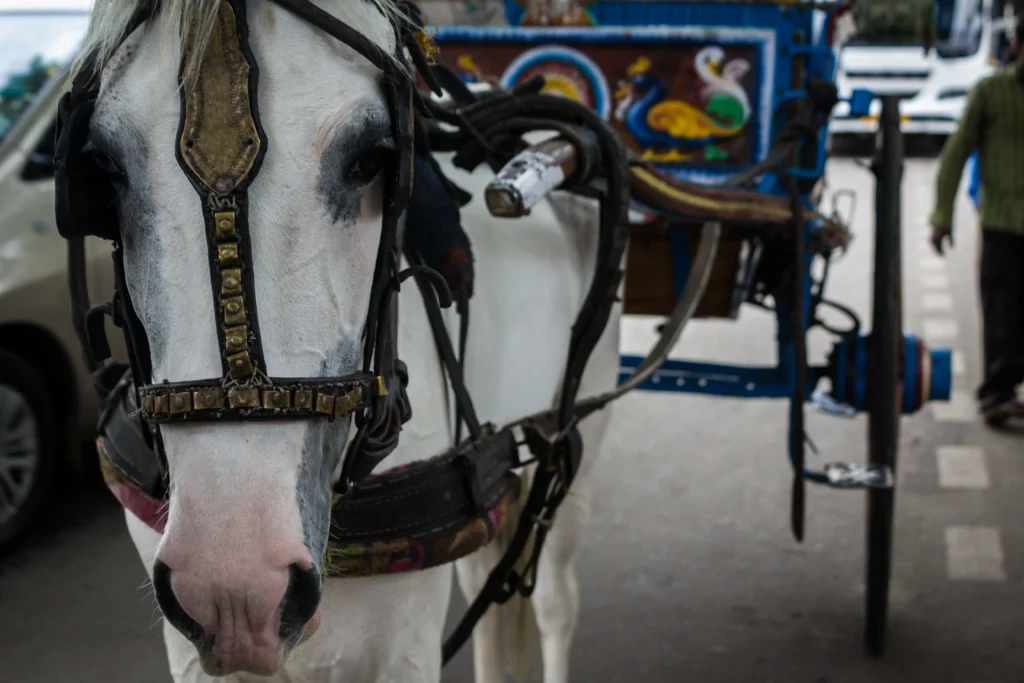
Poor Construction
A quick search for “horse mask Amazon” reveals hundreds of options at various price points, but customer reviews frequently highlight quality issues. Common complaints about horse-masks include:
- Unpleasant chemical odors that persist even after airing out
- Thin material that tears easily
- Uncomfortable seams that cause skin irritation
- Inconsistent sizing that doesn’t fit properly
According to consumer reviews aggregated from multiple online marketplaces, over 40% of horse mask purchases result in some level of dissatisfaction with the product quality.
Discomfort During Extended Wear
Even a high-quality horse-mask for adults can become unbearably uncomfortable after just a short period of wear. Issues frequently reported include:
- Heat buildup inside the mask
- Pressure points on the face and head
- Difficulty drinking or eating
- Fogging of the eye holes
- Hair becoming tangled in the mask material
For most people, the novelty of wearing a horse face mask wears off long before the discomfort becomes tolerable. This leads to many horse-masks being used once and then relegated to storage, representing a poor value for the purchase price.
Limited Durability
Most affordable horse-masks are not designed for regular or long-term use. The materials degrade over time, especially when exposed to:
- Sunlight, which can cause fading and material breakdown
- Moisture from breath and perspiration
- Stretching from repeated putting on and taking off
- Storage in non-climate-controlled environments
According to product lifecycle assessments, the average rubber horse mask has an effective usable life of just 5-10 wearings before showing significant signs of deterioration.
Reason 3: Environmental Impact
Non-Biodegradable Materials
Most horse-masks are manufactured using materials that are problematic from an environmental perspective:
- Latex rubber, while technically derived from natural sources, is processed with chemicals that slow biodegradation
- Synthetic rubber and plastic components can take hundreds of years to break down
- Paints and dyes used for details often contain environmentally harmful compounds
A single horse-mask discarded in a landfill can persist for decades, contributing to the growing problem of non-biodegradable waste.
Manufacturing Footprint
The production process for a typical horse-mask involves:
- Petroleum-derived materials
- Chemical processing agents
- Significant water usage
- Energy-intensive manufacturing
- International shipping (as most masks are manufactured overseas)
According to environmental impact assessments of novelty items, the carbon footprint of producing and shipping a single horse mask can be equivalent to driving an average car for 15-20 miles.
Limited Recycling Options
When a horse mask reaches the end of its useful life, recycling options are extremely limited:
- Most municipal recycling programs do not accept mixed material items like horse masks
- The combination of different plastics, rubber, and adhesives makes separation nearly impossible
- Few specialized recycling services exist for these types of novelty items
This means that virtually all horse masks eventually contribute to landfill waste or, worse, can end up as environmental pollution if improperly disposed of.
Reason 4: Social and Psychological Factors
Diminishing Novelty Value
The horse mask trend has been around for over a decade now, which means:
- The shock or humor value has significantly decreased
- What once seemed random and funny now often comes across as a tired attempt at humor
- Many people immediately associate horse masks with dated internet memes
In a survey of internet trends, researchers found that the perceived humor value of recurring memes like the horse mask decreases by approximately 35% each year after peak popularity.
Potential for Misinterpretation
Wearing a horse mask in public settings can lead to unintended consequences:
- In some locations, fully concealing your face may violate local ordinances
- The unusual appearance can frighten children or sensitive individuals
- In certain contexts, the mask might be perceived as threatening rather than humorous
According to police reports, there have been numerous incidents where individuals wearing animal head masks like a horse head mask have caused public disturbances or unnecessary alarm.
Impact on Social Interactions
A horse mask fundamentally changes how people interact with you:
- It conceals facial expressions, which are crucial for normal social communication
- The mask creates a physical and psychological barrier between you and others
- Voice is muffled and distorted, making conversation difficult
- It can make others uncomfortable or uncertain how to respond
Psychologists note that face-concealing masks like the horse mask can create anxiety in social situations because they violate the normal expectations for face-to-face interaction.
Reason 5: Ethical and Empathetic Considerations
Potential Distress to Animals
While it might seem amusing to humans, a realistic horse mask can be genuinely distressing to animals, particularly:
- Actual horses, who may perceive the mask as a distorted or injured member of their species
- Dogs and other pets who rely heavily on facial recognition for social cues
- Farm animals who might experience stress from the uncanny resemblance
According to animal behaviorists at The Humane Society, animals can experience significant stress when confronted with objects that mimic but distort animal appearances.
Cultural Sensitivity
In some cultural contexts, animal masks carry specific ceremonial or religious significance:
- Various Native American traditions include horse representations in sacred contexts
- Some Asian cultures have specific traditions involving animal masks
- Certain religious traditions consider specific depictions of animals to have spiritual significance
Using a horse mask purely for humor could be perceived as insensitive or disrespectful to these cultural traditions.
Accessibility Considerations
The trend of wearing horse masks for humor often fails to consider how this might affect people with various conditions:
- Those with certain phobias may experience genuine distress
- People with autism or sensory processing disorders might find the disguised face particularly disturbing
- Individuals with past trauma related to disguises or concealed identities may experience anxiety
Being mindful of these potential impacts demonstrates respect and empathy for diverse experiences.
Alternatives to Consider
If you’re attracted to the horse mask concept but concerned about the issues outlined above, consider these alternatives:
For Costumes and Cosplay
- Partial face masks that don’t restrict breathing or vision
- Makeup effects that create animal features without covering the entire face
- Headbands with horse ears and mane details
- Digital filters for photos and videos that add horse features without physical discomfort
For quality cosplay options, CosplayHut offers alternatives that are both more comfortable and more detailed than the typical horse mask cosplay options.
For Parties and Events
Instead of relying on a horse mask party theme:
- Photo booths with digital horse filters
- Horse-themed decorations and activities
- Horse-inspired makeup stations
- Sustainable party favors with equine motifs
For Collectibles and Displays
If you appreciate the aesthetic of a horse mask but don’t want to wear one:
- Mini collectible versions that serve as art pieces
- Professional-grade display masks made from sustainable materials
- Digital art featuring the horse mask motif
- Supporting artists who create horse-themed work using sustainable practices
Visit PetsPump.com’s article on sustainable pet accessories for more eco-friendly animal-themed items.
When a Horse Mask Might Be Appropriate
Despite the concerns outlined above, there are limited situations where a horse mask might be acceptable with proper precautions:
Short-Duration Photography
Using a horse mask briefly for a planned photo shoot presents fewer issues than extended wear, provided:
- The wearer takes regular breaks
- The environment is safe and controlled
- Proper ventilation is maintained
- The mask is removed immediately if any discomfort occurs
Controlled Indoor Events
A horse mask might be appropriate for brief use at certain events if:
- Wear time is limited to 15-20 minutes with breaks
- The venue has good ventilation
- No vulnerable individuals (young children, animals) will be present
- The wearer has a companion who can assist if visibility issues arise
Professional Productions
In professional film, theater, or advertising productions, many of these concerns can be mitigated through:
- Custom-made, properly fitted masks with better ventilation
- Professional supervision and safety protocols
- Limited wear time between takes or scenes
- Appropriate context and purpose for the mask’s use
Making an Informed Decision
If you still feel drawn to purchasing a horse mask despite the concerns outlined in this article, consider these steps to minimize the negative impacts:
Research Ethical Manufacturers
Look for companies that:
- Use more sustainable materials in their horse masks
- Maintain fair labor practices
- Offer quality products designed for comfort and durability
- Provide transparent information about materials and production
Establish Clear Guidelines for Use
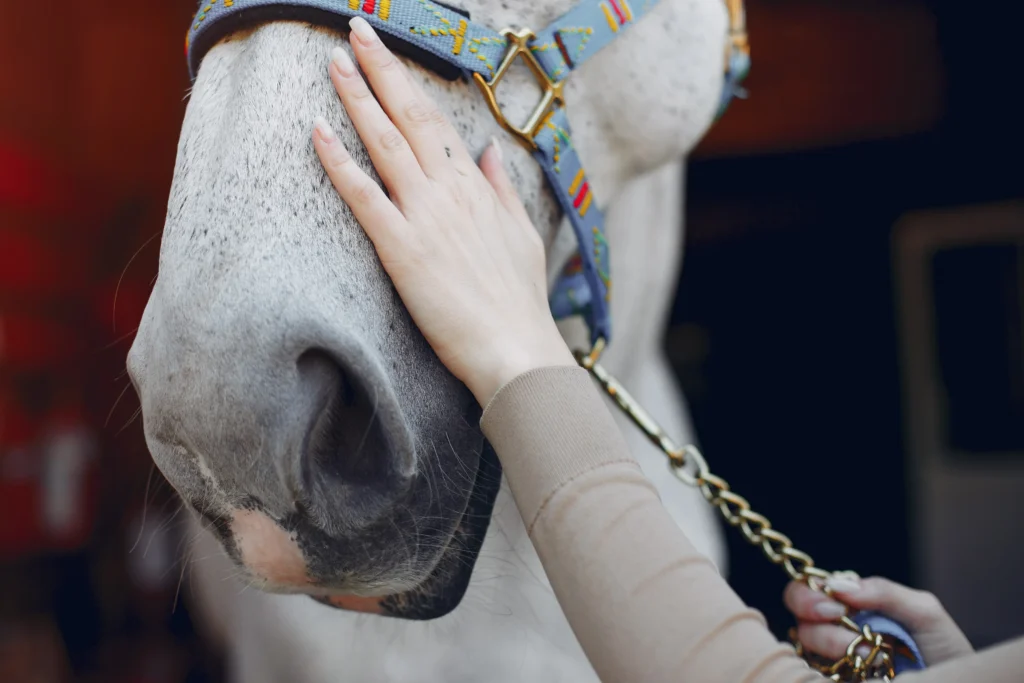
Before using a horse mask, decide:
- Specific occasions where it will be used
- Time limits for continuous wear
- Environments that are safe and appropriate
- How to recognize when others might be uncomfortable
Consider the Full Lifecycle
Think about what will happen to your horse mask when you’re finished with it:
- Can parts be repurposed or recycled?
- Is there a way to extend its useful life?
- How will you dispose of it responsibly?
- Could it be donated for appropriate use (such as to theater groups)?
Conclusion
While the horse mask trend has created countless memorable internet moments and provided amusement for many, the five reasons outlined in this article present compelling arguments for reconsidering their use. From health and safety concerns to environmental impact, quality issues to social and ethical considerations, the drawbacks of horse masks often outweigh their novelty value.
Whether you’re contemplating purchasing a realistic horse mask, a scary horse mask, or even a supposedly funny horse mask, it’s worth taking these factors into account. The momentary amusement a horse mask might provide rarely justifies the potential negative consequences of its production, use, and eventual disposal.
For those interested in alternatives that celebrate equine themes without the drawbacks of a full horse mask, explore our related articles at PetsPump.com about responsible pet costumes and ethical animal-themed products.
By making more conscious choices about novelty items like horse masks, we can enjoy humor and creativity while still respecting personal safety, environmental sustainability, and the comfort of those around us.
FAQs About Horse Masks
Are horse masks safe to wear?
Horse masks can pose safety risks due to restricted vision and breathing difficulties. They should never be worn while driving, operating machinery, or in situations requiring full awareness of your surroundings.
How long can you safely wear a horse mask?
Most health experts recommend limiting wear of any full-face mask like a horse mask to 20-30 minutes at a time, with breaks in between. Extended wear can cause overheating, skin irritation, and breathing difficulties.
Are latex horse masks recyclable?
Unfortunately, most latex horse masks are not recyclable through conventional programs due to their mixed materials. The combination of latex, plastics, adhesives, and paints makes them difficult to process in standard recycling facilities.
Why do horse masks smell bad?
The unpleasant odor commonly associated with horse masks comes from chemical compounds used in manufacturing, particularly those used to treat latex and rubber. These volatile organic compounds (VOCs) can continue to off-gas for weeks or months after production.
Can wearing a horse mask frighten animals?
Yes, many animals (including horses) can find realistic animal masks confusing or frightening as they present an uncanny valley effect—something that looks like their species but behaves differently. This can cause genuine distress to pets and livestock.
Are there any regulations regarding wearing horse masks in public?
Regulations vary by location, but many municipalities have ordinances restricting face coverings in certain public spaces for security reasons. Always check local regulations before wearing a full-face mask like a horse mask in public areas.
What are some signs that I should immediately remove a horse mask?
Remove a horse mask immediately if you experience difficulty breathing, dizziness, excessive sweating, skin irritation, claustrophobia, or severely impaired vision. These are signs that the mask is negatively affecting your health and safety.
This article was last updated on May 13, 2025



